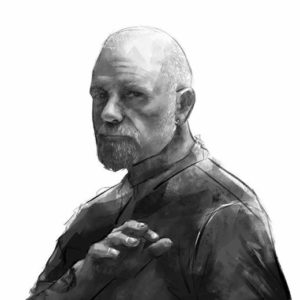A theme that has cropped up several times since the last workshop has been on achieving freedom from past memories. I say ‘memories,’ not the events themselves which is the way many people habitually refer to their past traumas. It is not the event that is the problem, but the memory. The event is of course long gone.
Lets start by reminding ourselves of a few things about memory, then we’ll think about how to change them.
Memories are stored with their emotional content. The emotion is like the tag on the file that enables you to find it in the filing cabinet of your brain. Without that tag sticking up, the file would be simply lost amongst the other uninteresting stuff.
Next you need to understand that a memory is not a very accurate recording of events. First, it is only the stuff that was presented to your conscious attention; very little information. Ask any policeman about the problem of finding even two witness statements that agree about the same event. During the event you were reminded about other memories, which are also part of the event memory thereafter and you may not realize that you have dropped in details of previous events. This is especially true when strong emotions are involved.
Then consider that when you remember something, your current emotions and conscious environment are part of the remembering experience. The next time you recall the original event, your memory will include to a greater or lesser extent the added features of your previous remembering experience. This can include suggested details. So you recount for the first time a car accident that you saw. Someone says, innocently ‘I bet the squeak of breaks was loud’ and you imagine the sound of squeaking breaks. The next occasion when you recall the accident, you genuinely remember the squeaking breaks as part of the memory.
Once you get how this all works it becomes possible to change your memories and more importantly, how they emotionally affect you now.
If your imagined additions can be added to the memory, then how about using that. Let me sketch out an example to demonstrate this method. (To add to those used in the recent seminar) Suppose you have a memory of being a child and you remember an event when you were very upset, but no one comforted you. This event has stayed with you, as a trauma that has left you feeling that somehow you are on your own and no one will help you when you are in need.
You recall being curled up, on your own, crying, possibly in your room. Now instead or remembering this as it was, you change the details. Move your point of observation to outside of yourself. Be your current grown up self looking at your childhood self crying. Now, as a grown up, go to this child, sit down, put an arm around them and comfort them they way they needed then. Hold them until they feel better. Tell them what you would as an adult; but not just any adult, an adult who genuinely knows their future. When the child is more relaxed and has passed through the distress you can tell them that it’ll be all right in the end and you’ll be watching over them. The next time you try to recall this event, all the new details will be added along with the emotions involved.
If you do this process deliberately, it is unlikely that you will actually fool yourself into believing that as a child, this strange adult appeared in your room and comforted you, because you will also remember intending to do this. However, you will find that your emotional response to the event has changed.
An important aspect of this process is to talk about these emotions to someone as this is part of the emotional processing required to be free of the past. But that will be the topic of another blog.









